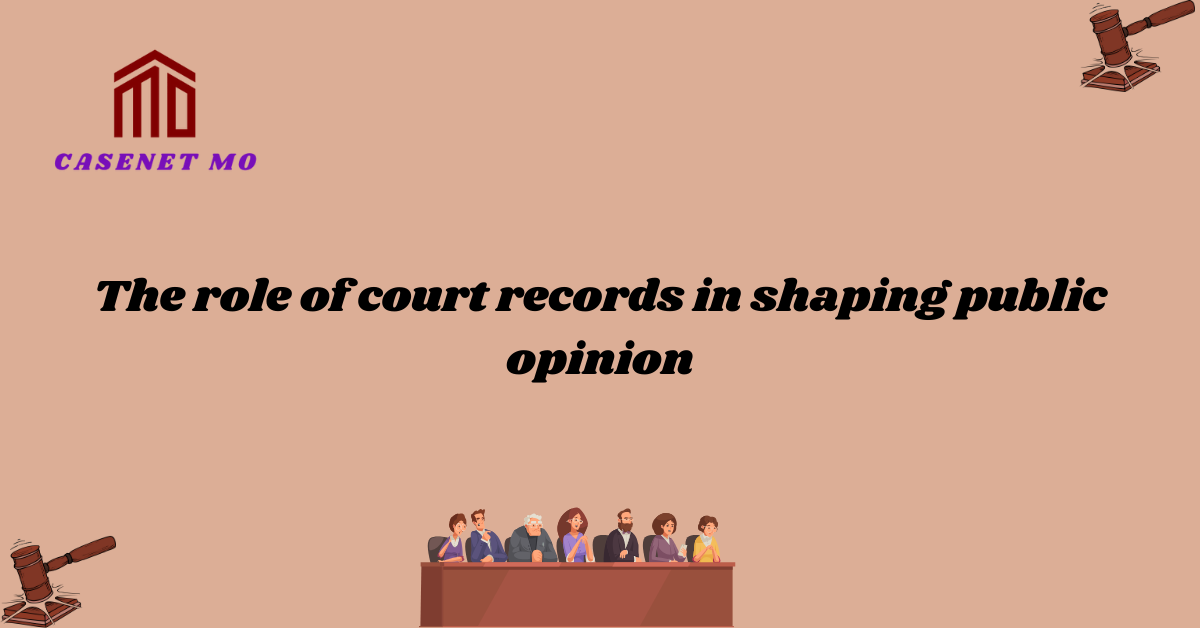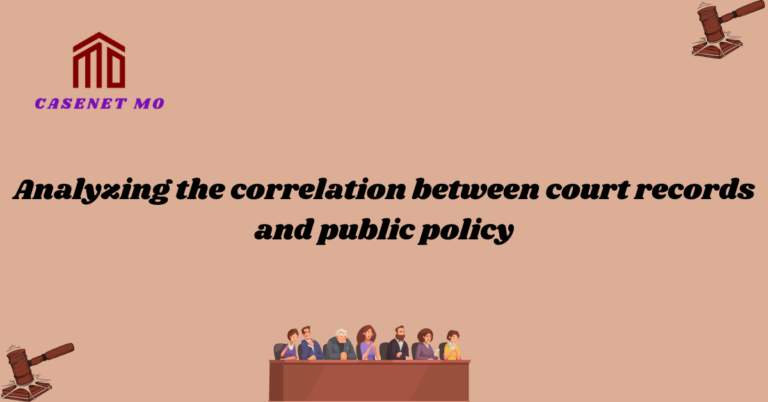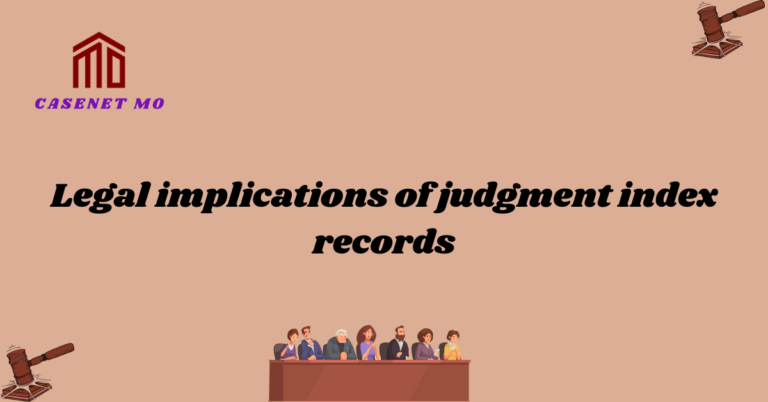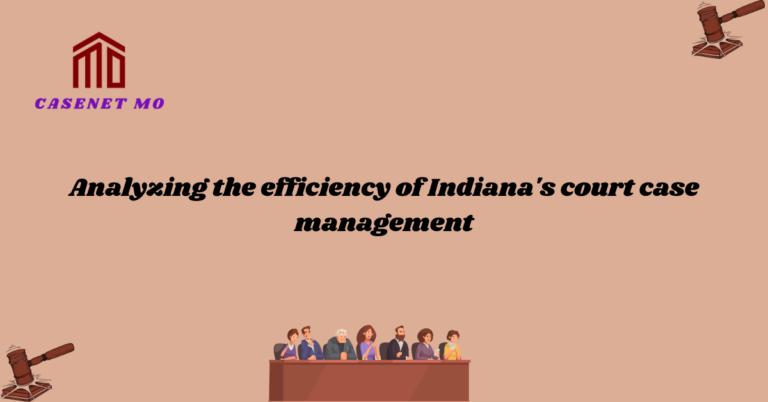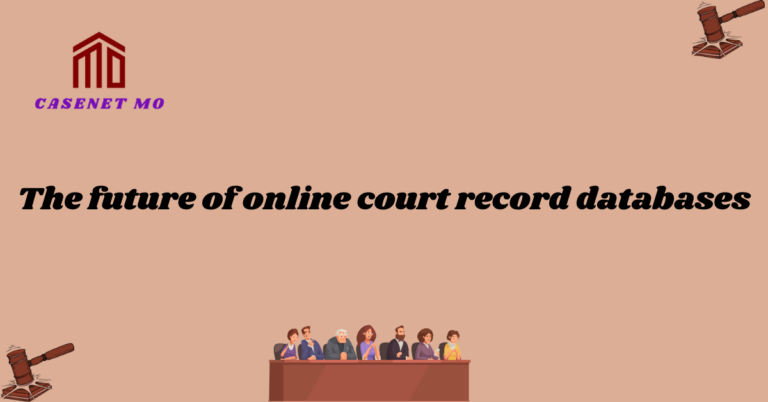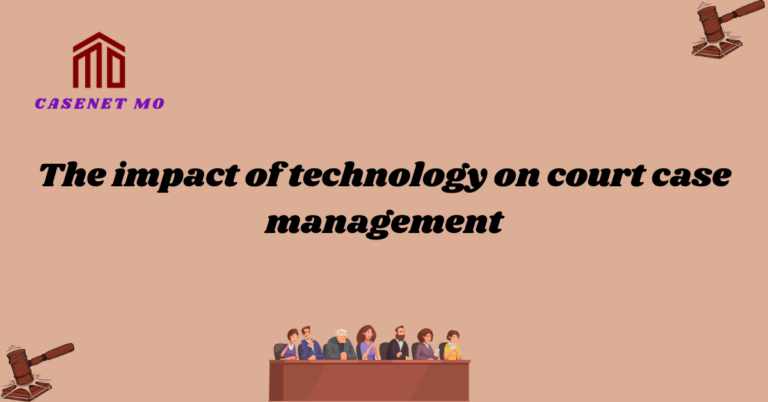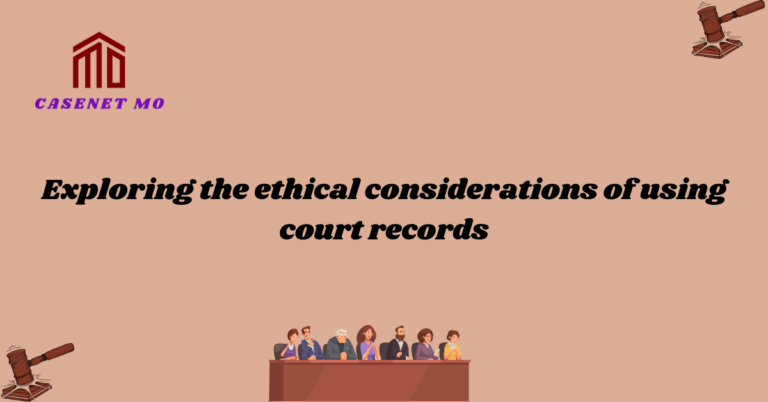The role of court records in shaping public opinion
Court records play a crucial role in shaping public opinion and understanding the legal landscape of a society. These records provide an invaluable source of information, allowing individuals to delve into the details of legal proceedings, judgments, and the overall functioning of the court system. By examining court records, one can gain insight into the workings of the justice system, the impact of legal decisions, and the principles that underpin a fair and just society.
From landmark cases that have shaped the course of history to everyday disputes that affect the lives of ordinary individuals, court records offer a window into the complexities of the legal world. They provide a comprehensive record of the arguments presented, the evidence considered, and the reasoning behind judicial decisions. Whether you are a legal professional, a researcher, or simply a curious citizen, exploring court records can broaden your understanding of the legal system and its impact on society.
The Power of Precedent
One of the most significant aspects of court records is their ability to establish legal precedent. Precedent refers to previous court decisions that serve as a guide for future cases with similar circumstances. By examining court records, legal professionals can identify key precedents that shape the interpretation and application of the law.
Understanding Judicial Reasoning
Court records also provide insights into the reasoning behind judicial decisions. Judges often provide detailed explanations of their thought processes, outlining the legal principles and evidence that influenced their rulings. This transparency not only fosters accountability within the justice system but also enables individuals to understand the underlying principles that guide legal judgments.
Uncovering Hidden Perspectives
While court hearings are public, not everyone has the opportunity to attend them. Court records bridge this gap by making the proceedings accessible to a wider audience. They allow individuals to explore different perspectives presented during the trial, including arguments from both the prosecution and the defense. This comprehensive view helps foster a more nuanced understanding of the legal process.
Tracking Legal Trends
Court records also offer a valuable resource for tracking legal trends over time. By analyzing a collection of court cases, researchers can identify patterns, shifts in judicial interpretation, and evolving societal values. This information can aid in predicting future legal developments and shaping public discourse on legal issues.
Preserving Our Legal Heritage
Another crucial role of court records is their function as historical artifacts. They serve as a testament to the legal heritage of a nation, documenting the evolution of laws and societal norms. Preserving court records ensures that future generations can learn from the past and gain a deeper appreciation for the rule of law.
Accessing Court Records
In today’s digital age, accessing court records has become easier than ever. Many court systems have implemented online databases, allowing users to search for specific cases and retrieve relevant documents. This accessibility promotes transparency and empowers individuals to engage with the legal system.
Whether you are a legal professional seeking precedents, a researcher studying legal trends, or a curious citizen interested in understanding the judicial process, court records offer a wealth of information. Their comprehensive nature, insightful reasoning, and historical significance make them an invaluable resource for anyone seeking to navigate the complexities of the legal world.
FAQs
How do court records establish legal precedent?
Court records play a crucial role in establishing legal precedent by providing guidance for future cases with similar circumstances. They allow legal professionals to identify key precedents that shape the interpretation and application of the law.
How do court files reveal judicial thought?
Court records provide insights into judicial reasoning by offering detailed explanations of judges’ thought processes. They outline the legal principles and evidence that influenced their rulings, fostering accountability within the justice system and enabling individuals to understand the underlying principles guiding legal judgments.
Why are court records vital for revealing hidden views?
Court records bridge the gap for those who cannot attend court hearings by making the proceedings accessible to a wider audience. They allow individuals to explore different perspectives presented during the trial, including arguments from both the prosecution and the defense. This comprehensive view fosters a more nuanced understanding of the legal process.
How can court records be used to track legal trends?
Court records offer a valuable resource for tracking legal trends over time. Analyzing a collection of court cases allows researchers to identify patterns, shifts in judicial interpretation, and evolving societal values. This information aids in predicting future legal developments and shaping public discourse on legal issues.
What is the historical significance of court records?
Court records serve as historical artifacts, documenting the evolution of laws and societal norms. They preserve the legal heritage of a nation and ensure that future generations can learn from the past, gaining a deeper appreciation for the rule of law.

